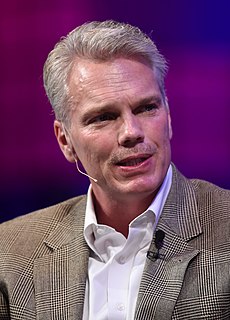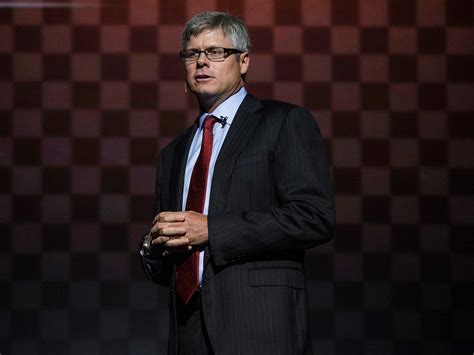A Quote by Dara Khosrowshahi
As we move over to more of a mobile device-centric world... I think the interaction model with devices is going to be much more voice-based.
Related Quotes
I don't know about virtual world, I think it's more a kind of parallel world. I think the advantages and disadvantages of technology are hugely exaggerated. It doesn't make that much difference. Sure if you've got a mobile phone, you use that over your landline. But I think that life goes on and we absorb stuff.
I saw lots of music devices. I loved playing with music devices. And like most of the world, I thought of a music device as a music device. Steve Jobs tends to look beyond that, and he doesn't see a music device as having any importance at all - how fast it is, how many songs it can hold, and all that - he sees music itself to a person as a being the important thing.
We have to go from what is essentially an industrial model of education, a manufacturing model, which is based on linearity and conformity and batching people. We have to move to a model that is based more on principles of agriculture. We have to recognize that human flourishing is not a mechanical process; it's an organic process. And you cannot predict the outcome of human development. All you can do, like a farmer, is create the conditions under which they will begin to flourish.
I'm excited about mobile; clearly that's important. Mobile devices are kind of at the opposite end of PCs, in that PCs are pretty open and you can do a fair amount with them, but many mobile devices aren't. We're excited at the idea that we can make the same kind of contribution in the mobile space. So that's one thing coming down the pike.
Telephones in 2020 will be archaic, relics of a bygone era-like transistor radios are today. Telephony, which will be entirely IP-based by then, will be a standard communications chip on many devices. We'll probably carry some kind of screen-based reading device that will perform this function, though I assume when we want to communicate verbally, we'll do so through a tiny, earplug-based device.
I still believe that we can offer you a much deeper, more engaging, more compelling play experience on a PC than we can on a mobile device, but one can enhance the other, and one can expand the other. I don't think they necessarily will compete with each other, just like how we find a place for movies in our lives, and TV and radio.
One of the problems with industrialism is that it's based on the premise of more and more. It has to keep expanding to keep going. More and more television sets. More and more cars. More and more steel, and more and more pollution. We don't question whether we need any more or what we'll do with them. We just have to keep on making more and more if we are to keep going. Sooner or later it's going to collapse. ... Look what we have done already with the principle of more and more when it comes to nuclear weapons.


































